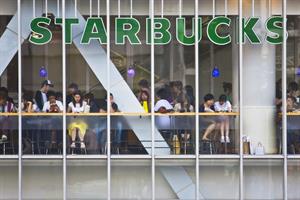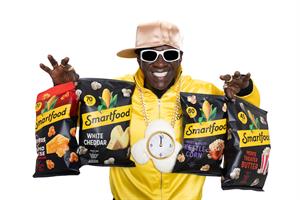Demand for Facebook ads has soared as brands have increased their social media presence. A new global digital marketing report from Efficient Frontier, shows that Facebook advertising is set to grow by 80% in 2011. However, Google continues to dominate online adspend. So, with branding and return on investment in mind, where should marketers be putting their money?
'It would depend on my marketing goals,' says Andrew Morley, general manager, UK and Ireland, for Motorola. 'Google is good at selling through direct response, but you tend to just capture the people with their hands in their wallet at the time, rather than trying to find those who aren't quite ready. That's where Facebook begins to have an edge.'
He adds: 'Some 35% of US smartphone users check their phone before they get out of bed and a fifth of them check Facebook.' This gives one indication of why the social network can be a compelling proposition for marketers.
For Motorola, most customers will buy its devices in store not online, and three-quarters of its potential audience will have a shortlist they are considering. Using both Facebook and Google helps ensure that the Motorola brand stands a good chance of appearing on that list.
Mat Braddy, chief marketing officer for online takeaway food aggregator Just-Eat, agrees. 'If you're trying to get new customers, then Google is the obvious choice. We spend a lot more on Google at the moment, and I think brands are likely to spend a lot more with Google in the long term. Facebook doesn't get us new customers, but it's a fantastic source of stimulating the ones we already have,' he says. 'One of our main priorities is rebooking business and for those making a second order with us, Facebook accounts for a third of all responses, just under TV.'
Just-Eat's customer service operation is also configured socially, with real-time response through Facebook and Twitter as well as a live web chat option through its website.
Jonathan Williams, e-marketing director for used-car service Auto Trader, which spans print, web and mobile, highlights the difference between display advertising on Facebook and creating a social-media presence.
'Display advertising within Facebook is a great way to get your brand in front of that customer,' he says. 'In the auto category, 12% of people who arrive on an auto website have visited Facebook before. For our site, it's 6%, so there is a chance to increase our dialogue with customers. We should be getting more as we are a significant proportion of the auto sector.
'Our customers will also have a twoto three-year gap between buying cars, so we have to think about how to keep that customer engaged over that period. A Facebook presence is a great way to do that.'
Mark Bloxham, marketing director for travel service Teletext Holidays, takes a different approach. 'We never display advertise with Facebook,' he says. 'Holidays are so personal and there are too many variables.
We use Google search for that, whereas we use Facebook for discussions of where to go on holiday. Much like a virtual travel agent, we have people who will track down the best deal for that customer.'
'This kind of tailored response through Facebook is the difference between investment in Google and Facebook,' suggests Morley.
'It's a lot more personand time-intensive, rather than spend-intensive, but in terms of time and priorities for the business, it's extremely important.'
Braddy believes that Facebook provides significant opportunities. 'It's great for publishing and broadcasting content and it's popular with customers, but the ability to build a database of fans, to see what they've bought and their booking patterns, is essential to go from investing a five-figure sum to a six-figure sum.' Just-Eat, he says, has hesitated to incorporate 'like' and 'share' buttons without access to such measurement.
For Bloxham, however, Facebook offers a different kind of value. A closed Facebook user group of about 80 fans tests the Teletext Holidays website to help improve how it works. 'We've found value from it in consumer insight. I can't do ROI, but I can justify the investment with this insight and additional value.'
Away from Google and Facebook, other digital platforms can also offer valuable returns. 'We've had successful relationships with smaller properties such as Last.fm and LinkedIn. Google might have the majority share of search, and Facebook of social-media interaction, but when you add the smaller properties together, especially when targeting a particular demographic, it can have more power and get higher levels of interaction,' says Morley.
This approach has been similarly successful for Bloxham. 'You have to see what social space will work for that particular segment,' he says. 'We've done work with Spotify on a holiday soundtrack and Kindle on holiday reads. Two small ideas, but when you make it social, the engagement levels are high.'
Braddy, meanwhile, has ventured into in-game advertising to better target Just-Eat's core young male demographic, as well as doing sponsored tweets on Twitter.
The size and scale of Motorola's business means that it works with an agency to co-ordinate its range of social media activity. However, Braddy asks whether it isn't better to keep the work in-house: 'You know the brand best and have been building up those fans.'
Working with an agency can be beneficial, according to Jonathan Beeston, global marketing director of digital and social media optimisation agency Efficient Frontier. 'It's like setting up a call centre,' he says. 'You might get an outside company to create it, but you're unlikely to get them to answer the phones. The best voice for your brand is going to be your company and your employees. An agency simply facilitates that.'
Bloxham agrees. 'We use an agency and a lot of that is for the technical side, but it's also for content creation,' he says. 'There's no one better than an employee to talk about the brand, but then, someone external is better able to see what's needed from a distance.'
While neither Google nor Facebook alone can fulfil all a brand's marketing goals, as the more mature platform, Google is ahead in terms of its offerings. Williams and Morley both await a more integrated offering from Facebook, and Braddy, more open data.
With adspend on Facebook rising faster than the amount invested in any other online platform, however, such developments might not be too far away. Google continues to strengthen its offerings with products such as its +1 recommendations tool, and the rivalry between the platforms can only benefit marketers.
'Google has established a very stable ecosystem,' says Beeston. 'With Facebook, you have to think long-term and plan out dialogue. A lot of brands jump on the bandwagon, and then think: "What am I going to say?" It can be damaging if they haven't thought through what they are going to do once they are there.'
Ultimately, he concludes, the rewards are there for brands prepared to do their homework. 'Everyone's experimenting, so you need to understand what your marketing goals are, but you have to provide something that offers real engagement.'
AROUND THE TABLE
Mat Braddy, chief marketing officer, Just-Eat
Jonathan Williams, e-marketing director, Auto Trader
Andrew Morley, general manager, UK and Ireland, Motorola
Mark Bloxham, marketing director, Teletext Holidays
Jonathan Beeston, global marketing director, Efficient Frontier
Efficient Frontier's latest report 'Q2 2011 Global Digital Marketing Report' is available here








